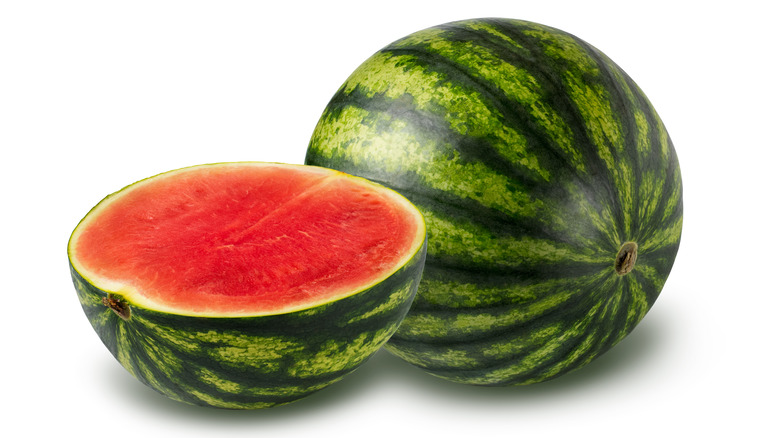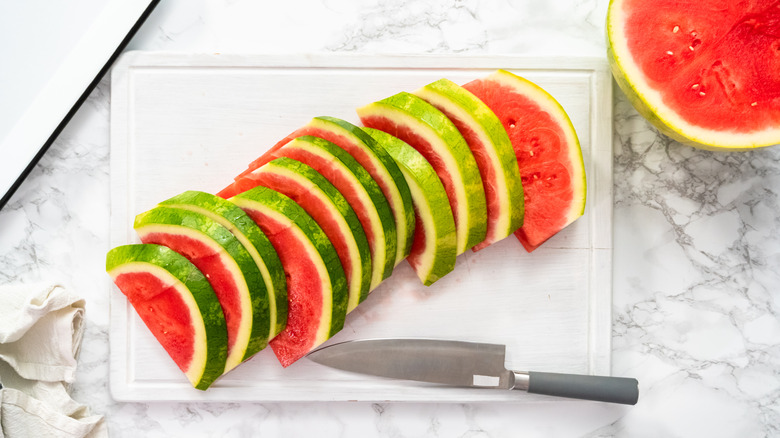Do Seedless Watermelons Taste Different From Seeded Ones?
Unless you're into competitive watermelon seed spitting, there's no doubt chomping into the seedless variety on a hot summer day is a more pleasant experience. You will have all of the juicy freshness without pesky seeds getting in the way of sheer enjoyment. But do seedless watermelons actually taste different from their seeded brethren? Well, that's a question for the experts.
First, let's define seedless watermelons. For all intents and purposes, they aren't totally seedless. When we think of watermelon seeds, most of us picture teardrop-shaped black seeds. Those are mature seeds. While you won't find them in seedless varieties, you're likely to come across soft, whitish seed coats (via Watermelon.org). According to Slate, the soft white pods are baby seeds. A typical seeded watermelon can have up to 800 seeds, including a small portion infertile white baby seeds. The thing is, those infertile seeds won't reproduce, so how the heck do we get seedless watermelon?
Kyoto University scientist Professor H. Kihara developed seedless varieties of watermelon in the 1930s (per Nature's Produce). According to the University of Arkansas System's Division of Agriculture Research & Extension, Kihara used colchicine, a natural substance, to double the chromosomes in watermelon. To cut to the chase: The seedless watermelons that we enjoy today are a special variety that have an extra set of chromosomes. It takes two different kinds of seeds to grow one seedless watermelon: one fertile, one sterile.
The truth is in the taste test
Given the extra effort required, growers initially resisted seedless watermelons. According to the Oklahoma Ag in the Classroom (OAC), even into the 1970s, only one farm in the U.S. was producing seedless watermelons. In 1985, Dr. Orie Eigsti partnered with Oklahoma Sen. Bruce Price to form American Sunmelon. The initiative paid off, leading to the prevalence of the seedless watermelon we know and love (per OAC).
But back to our original question: Does seedless watermelon taste different from seeded varieties? While some think so, TheKitchn states that you shouldn't be so fast to judge, noting that the flavor of watermelon, whether seeded or seedless, stems mostly from environmental factors. These include where it's grown, the climate, and soil. On the other hand, since seedless watermelon has an extra set of genes which enhance the environmental factors, it could be argued that seedless watermelon has more depth of flavor. According to Specialty Produce, seedless watermelons have a moderate sugar content (similar to seeded watermelons, per a 2018 article published in the journal, HortScience). They are usually sweet with a fruity, earthy flavor.
Stephanie Barlow of the National Watermelon Promotion Board addressed the question in a post on What About Watermelon: "This is an age-old debate, that's for sure! The fact is, all watermelon grown and sold for commercial use must meet a minimum brix level, or sweetness level. Most watermelon exceeds that level, with some having a slightly higher brix level depending on the seed variety and some of the other factors [mentioned earlier]."
So, it looks like a taste test is in order. Enjoy!

